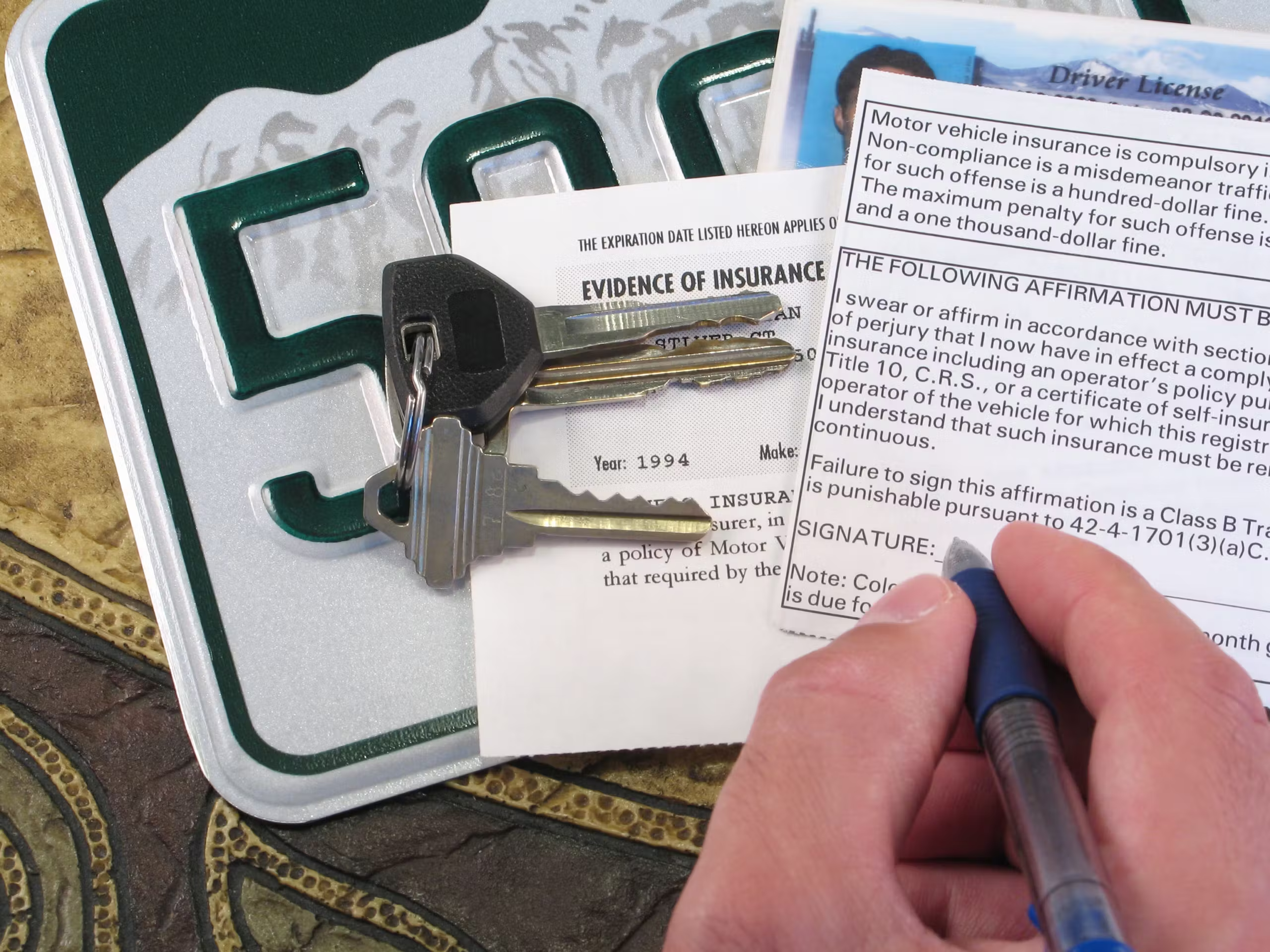Getting a car registered typically takes around one to two weeks, depending on the state and specific requirements. Welcome to our comprehensive guide on how long it takes to get a car registered.
Whether you’re buying a new or used vehicle, registering it is an essential step. The registration process is impacted by various factors, such as your location and the state’s regulations. We’ll discuss the average timeline for getting a car registered, the steps involved, and tips to expedite the process.
By understanding the registration process, you’ll be better prepared to ensure your vehicle is properly registered with the appropriate authorities within the required timeframe. Let’s dive in!

Credit: licensingexpress.wordpress.com
Factors Affecting Registration Time
When it comes to getting your car registered, the time it takes can vary based on a number of factors. Understanding these factors can help you navigate the registration process more effectively. Whether it’s the state regulations or the type of vehicle you own, each factor plays a crucial role in determining the time it takes to get your car registered.
State Regulations
State regulations play a significant role in the time it takes to get your car registered. Each state has its own set of rules and procedures for vehicle registration, which can affect the processing time. Some states may have streamlined online registration processes that can significantly expedite the process, while others may require in-person visits or have longer processing times.
Type Of Vehicle
The type of vehicle you own also influences the registration time. For example, registering a standard passenger vehicle may take less time compared to registering a commercial vehicle or a special-purpose vehicle. Additionally, vehicles with unique features or modifications may require extra documentation and inspections, which can extend the registration process.
Understanding these factors and their impact on the registration process can help you prepare and plan accordingly. By staying informed about state regulations and being aware of the specific requirements for your vehicle type, you can navigate the registration process more efficiently and minimize delays.

Credit: www.carfax.com
Completing Necessary Documentation
Completing the necessary documentation is a crucial step in the process of registering your car. It involves gathering required documents and filling out forms. By ensuring that you have all the necessary paperwork ready and correctly completed, you can expedite the registration process and avoid any unnecessary delays. In this section, we will outline the steps involved in completing the necessary documentation when registering a car.
Gathering Required Documents
Before heading to the registration office, it is essential to gather all the required documents. This will help you avoid any last-minute hassle or delays in the process. Here are the key documents you will need:
- Proof of ownership: This can be in the form of a vehicle title or a bill of sale, depending on the specific requirements of your state or country.
- Valid identification: You will need to provide a valid identification document, such as a driver’s license or passport, to verify your identity.
- Proof of insurance: Most jurisdictions require proof of insurance coverage before registering a vehicle. Make sure to have your insurance documents handy.
- Vehicle inspection report: Some states or countries may require a vehicle inspection report to ensure that your car meets the necessary safety and emissions standards.
- Previous registration documents: If your car was previously registered, you may need to submit the previous registration documents as part of the registration process.
Filling Out Forms
After gathering the required documents, the next step is to fill out the necessary forms. These forms are typically available at the registration office or can be downloaded from the relevant government website. When filling out the forms, it is important to pay attention to detail and ensure that all information is accurate. Here are a few important tips to keep in mind:
- Read the instructions carefully: Each form will come with specific instructions on how to fill it out correctly. Take the time to read and understand the instructions before proceeding.
- Provide accurate information: Double-check all the information you provide on the forms to avoid any mistakes or discrepancies. This includes details such as your name, address, vehicle identification number (VIN), and insurance information.
- Sign and date the forms: Make sure to sign and date the forms where required. Failure to do so can result in delays in the registration process.
- Submit additional documentation if required: Depending on your state or country’s regulations, you may need to submit additional documents along with the forms. Ensure that you have all the necessary paperwork ready to avoid any setbacks.
Visiting The Dmv
When it comes to registering your car, one of the essential steps is visiting the Department of Motor Vehicles (DMV). Here’s what you need to know about scheduling an appointment and the in-person registration process.
Scheduling An Appointment
Scheduling an appointment at the DMV can save you a significant amount of time. Instead of waiting in long queues, you can simply book a slot online or over the phone. You’ll be able to choose a date and time that works best for you, reducing any unnecessary waiting.
In-person Registration Process
The in-person registration process at the DMV may seem daunting, but it’s actually quite straightforward. Here’s a step-by-step breakdown:
- Gather the required documents: Before heading to the DMV, make sure you have all the necessary documents, such as your driver’s license, proof of insurance, and the vehicle’s title and bill of sale.
- Complete any pre-registration requirements: Some states require pre-registration inspections or emissions tests. Be sure to fulfill these requirements before visiting the DMV.
- Check for additional paperwork: Depending on your specific circumstances, there may be additional paperwork needed. This could include documents related to liens, out-of-state transfers, or previously salvaged vehicles.
- Pay the registration fee: The DMV will typically require you to pay a registration fee, which varies depending on the state and vehicle type.
- Submit the required forms: Fill out the necessary registration forms accurately and completely. Double-check the information to ensure there are no mistakes or omissions.
- Receive your registration materials: Once your paperwork is processed, you’ll be handed your registration materials, including the license plates and registration sticker.
- Install your license plates: Make sure to affix the license plates properly according to the DMV guidelines.
Overall, the in-person registration process at the DMV may take a couple of hours, depending on the state and the number of people at the facility. By scheduling an appointment and preparing the necessary documents, you can help streamline the process and get your car registered efficiently.
Waiting Period
The waiting period for car registration can vary depending on the state or country in which you reside. Understanding the processing time, vehicle inspection, and other factors can help you better anticipate the length of time it will take to get your car registered.
Processing Time
The processing time for car registration generally takes anywhere from a few days to several weeks. This duration is influenced by the efficiency of the local department of motor vehicles (DMV), volume of applications, and completeness of the documents submitted.
To ensure a swift processing time, it is crucial to have all required documents, such as the vehicle title, bill of sale, and insurance, in order. Incomplete paperwork can lead to delays in the registration process.
Vehicle Inspection
Vehicle inspection is a critical step in the car registration process. This entails ensuring that the car meets safety and emissions standards set by the governing authority. Some regions require a physical inspection at a designated inspection station, while others may only mandate an emissions test.
Meeting the inspection requirements can impact the overall waiting period for car registration. Ensuring that your vehicle is in compliance with the necessary standards can help expedite the registration process.
Temporary Registration Options
When registering a car, temporary registration options are available for immediate use.
Temporary Plates
Temporary plates provide short-term legality while waiting for permanent registration.
Temporary Permits
Temporary permits offer a limited timeframe for legal operation before permanent registration is finalized.
Online Registration Services
When it comes to registering a car, Online Registration Services have streamlined the process, making it more convenient for vehicle owners.
Digital Platforms
e-Services have shortened the time needed for car registration, allowing users to submit documents swiftly.
E-services
Online platforms have simplified the registration process, reducing the traditional paperwork hassles.
Potential Delays
When it comes to getting your car registered, there can be potential delays that may prolong the process. These delays can be due to various factors such as missing documents and out-of-state vehicles.
Missing Documents
One common reason for delays in car registration is missing documents. Missing paperwork, such as a valid driver’s license, proof of insurance, or the vehicle’s title, can significantly slow down the registration process. It’s essential to double-check all required documents before submitting your application to avoid any unnecessary delays.
Out-of-state Vehicles
Out-of-state vehicles can also contribute to delays in the registration process. Transferring a vehicle’s registration from another state often involves additional paperwork and procedures that may take longer to process. This includes obtaining out-of-state vehicle inspections and meeting specific emission standards that vary from state to state.
Registration Fees And Taxes
When it comes to registering a car, it’s important to understand the registration fees and taxes involved. These fees and taxes can vary depending on several factors, including the state you live in, the type of vehicle you own, and even the weight of the vehicle.
Cost Breakdown
Let’s break down the common costs involved in car registration:
- Registration fee: This is a flat fee charged by the state to register your vehicle. It typically ranges from $20 to $100.
- License plate fee: In addition to the registration fee, you may need to pay a fee for your license plates. This fee can range from $5 to $25.
- Vehicle weight fee: Some states charge an additional fee based on the weight of your vehicle. This fee is designed to offset the impact heavier vehicles have on roads and bridges. It can vary widely, ranging from $50 to several hundred dollars.
- Sales tax: When purchasing a new or used car, you’ll need to pay sales tax on the purchase price. Sales tax rates vary by state and can range from 2% to 10% or more.
- Additional taxes and surcharges: Depending on your state, there may be additional taxes and surcharges. These can include luxury taxes, environmental taxes, and even local taxes.
Payment Methods
Now that you have an understanding of the various costs involved in car registration, let’s explore the payment methods:
- Cash: Many states accept cash payments for registration fees and taxes. However, it’s always a good idea to check with your state’s Department of Motor Vehicles (DMV) to ensure they accept cash.
- Check: Writing a check is another common way to pay for registration fees and taxes. Make sure to fill out the check accurately and include any required information.
- Credit or debit card: Some states allow payment by credit or debit card. This can be a convenient option if you prefer not to carry cash or write a check.
- Online payment: With the advent of technology, many states now offer online payment options. This allows you to conveniently pay your registration fees and taxes from the comfort of your own home.
It’s important to note that each state may have different payment options available, so it’s always best to check with your state’s DMV for the most accurate and up-to-date information.
Renewing Vehicle Registration
Renewing vehicle registration is an essential task that every car owner must complete to ensure their vehicle remains legal on the road. It is important to know when and how to renew your car registration to avoid any legal repercussions. This section will delve into the process of renewing vehicle registration, including the frequency of renewal and the steps involved.
Frequency Of Renewal
In order to keep your car legally registered, it’s crucial to understand the frequency of renewal. The renewal period typically depends on the state or country you reside in. In some areas, it is required on an annual basis, while in others, you may only need to renew every two years. Always check with your local Department of Motor Vehicles (DMV) to determine the specific renewal period for your region.
Renewal Process
To renew your vehicle registration, you need to follow a specific process that may vary slightly depending on your location. Here are the general steps involved:
- Gather the necessary documents: Make sure you have all the required documents, including your current registration card, proof of insurance, and any applicable emissions test certificates. Have your driver’s license handy as well.
- Check for outstanding fines or tickets: Before starting the renewal process, ensure that you have paid any outstanding fines or tickets related to your vehicle. Unresolved issues can hinder your registration renewal.
- Visit the DMV or utilize online services: Depending on your preference and the facilities available in your area, you can either visit your local DMV office or use their online services to renew your registration. Many states now offer convenient online platforms to streamline the process.
- Complete the required forms: Whether you are renewing in person or online, you will need to fill out the necessary forms. Online applications usually require you to enter your vehicle information, insurance details, and payment information.
- Pay the renewal fees: Be prepared to pay the renewal fees, which can vary depending on your location and the type of vehicle you own. Accepted payment methods usually include credit/debit cards, checks, or cash if renewing in person.
- Receive your new registration documents: Once the renewal process is complete and your payment has been processed, you will receive your new registration card, often by mail. Make sure to keep this document in your vehicle at all times.
By following these steps and adhering to the renewal frequency specific to your region, you can ensure that your vehicle remains properly registered and legal on the road. Renewing your vehicle registration in a timely manner is not only a legal requirement but also contributes to a safer and more organized transportation system.
Tips For Expedited Registration
When it comes to registering a car, the process can sometimes be time-consuming. However, there are ways to expedite the registration process and get your vehicle legally on the road faster. Here are some tips for expedited registration that can help you navigate the process more efficiently.
Being Prepared
One of the best ways to expedite the car registration process is to be well-prepared. Before visiting the DMV or the relevant authorities, ensure you have all the necessary documents in hand. These documents usually include the vehicle’s title, insurance, bill of sale, and identification. Being prepared can help speed up the process as you won’t have to make additional trips to provide missing documents.
Utilizing Online Resources
Another effective tip for expediting registration is to utilize online resources. Many DMV offices offer online services for certain registration processes, such as renewals or address changes. Utilizing these online resources can save you time by allowing you to complete some of the requirements from the comfort of your own home. This can help streamline your visit to the DMV and reduce waiting time significantly.
:max_bytes(150000):strip_icc()/what-happens-when-you-buy-too-much-car.aspx-final-2d09842fa68a4ddba2baa0c5065fa4ab.png)
Credit: www.investopedia.com
Frequently Asked Questions Of How Long Does It Take To Get A Car Registered?
How Much Does It Cost To Register A Car In Texas?
Registering a car in Texas costs around $55 to $85. Additional fees may apply based on various factors.
How Long Do You Have To Get Registration After Inspection In Texas?
You have 30 days to register your vehicle after passing inspection in Texas.
How Long Do You Have To Register A Car In Texas After Purchase?
You must register a car in Texas within 30 days of purchasing it.
How Long Does It Take To Get A Title In Tx?
The process to get a title in Texas typically takes about 30 days.
Conclusion
The registration process length varies by state and circumstances. Understanding the steps involved can help you prepare and anticipate how long it may take to get your car registered. Remember to gather all required documents and meet any specific requirements to expedite the process.
Stay informed and plan accordingly.


